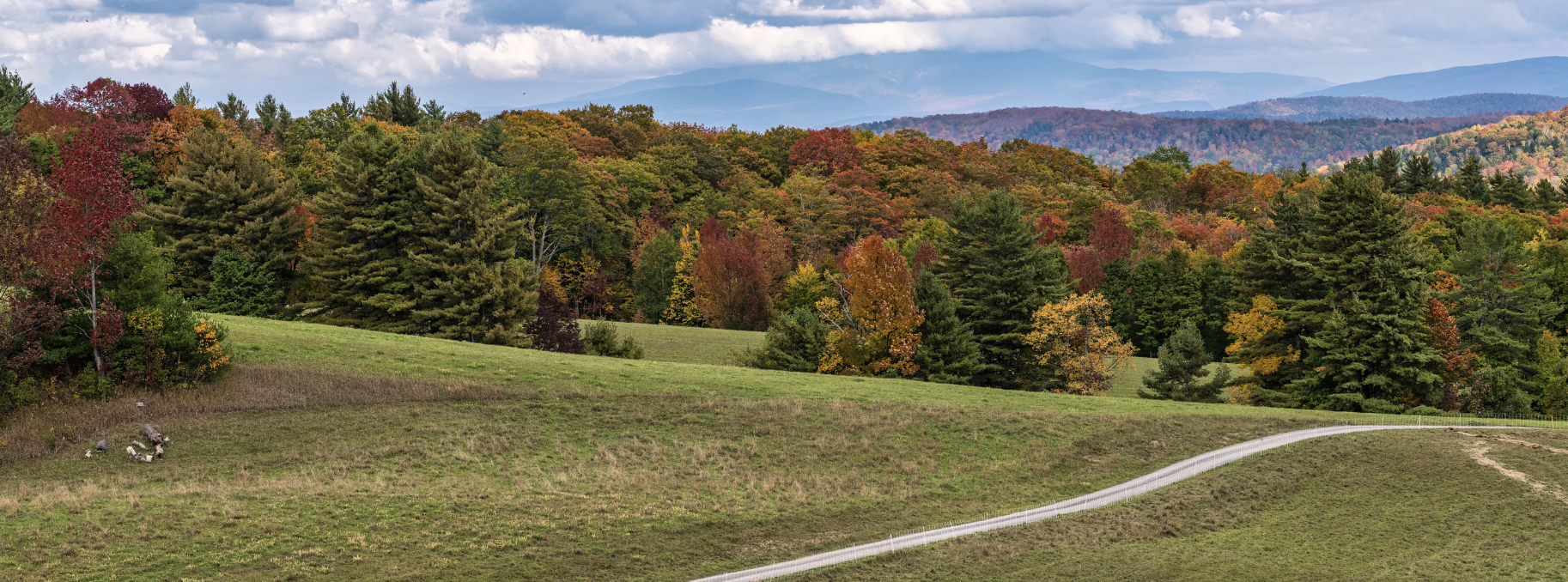
Belonging, Equity & Inclusion at the Mountain School
Introduction
The core of the Mountain School’s mission speaks of the need to take care, and that is what we do in our semester together. We take care of this place, we take care of ourselves, we take care of each other. Moreover, we learn how to take care. As a school that was founded by and designed for white, straight, cisgender, private school educated individuals, it has taken and will take us deliberate effort to learn how to take care of all the students who come to this place, and we must be willing to question and change some of our ways of teaching, learning, working, and living. We are committed to walking this path.
The sections below outline the resources and supports we have in place to help students with frequently marginalized identities feel a sense of belonging at the Mountain School. Beneath these resources and supports is a look at some of the moments and documents that have shaped recent changes. We have not finished all the work we need to do, and we welcome current students and faculty as well as our graduates to continue to collaborate with us in considering the school’s mission, program, and values.
Gender Inclusion Policy & All-Gender Housing
The Mountain School is committed to creating a school culture that is inclusive of all genders. We make these promises to every student:
You decide if and with whom you share your gender identity and status and/or your sexual orientation. There is no expectation that you disclose sensitive personal information unless you choose to do so.
You likewise decide the name and pronouns you will use while you are here. The name you go by does not have to match what is on your birth certificate.
You can expect to see your gender identity reflected in the Mountain School’s programming and in our curriculum.
You have the option to join your semester’s LGBTQ+ affinity group and/or to be matched with a graduate who shares your gender identity.
You have the right to housing that affirms your gender. All incoming students complete a housing survey indicating their preference for single-gender or all-gender housing. Our process for matching those requests with available dorm space is explained in the survey. Priority for either type of housing is based on need.
You may use any campus bathroom that feels comfortable to you. Mountain School bathrooms are open to all genders.
The Mountain School will not ignore bullying, harassment, or discrimination. If you experience any of these while you are here, we will take your complaint seriously. You can find our process for addressing these behaviors in the student handbook.
If you require medical care while you are here, you may request that we match you with a gender-affirming provider through the Vermont Diversity Health Project (VDHP). You may also request a confidential gender support plan before the semester begins or at any point once you are on campus.
Affinity Groups
Affinity groups at the Mountain School meet weekly and are facilitated by faculty members to provide a supportive, confidential space for students to have conversation with those with whom they share an important aspect of identity. At the start of each semester, faculty members will set up meetings for the Black, Indigenous, and People of Color (BIPOC) affinity group, the Lesbian, Gay, Bisexual, Transgender, Queer, Plus (LGBTQ+) affinity group, and the First-Generation, Low-Income (FLI) affinity group. In some semesters, other affinity groups form based on student interest. These have included a Jewish affinity group, an affinity group for children of divorced parents, and a dis/ability affinity group, among others. Affinity groups have a dedicated space on central campus to use for their meetings and a budget to support activities.
Student Support, Health & Wellbeing
The Mountain School employs a full-time social worker and a full-time nurse to support the mental and physical health needs of the students, as well as having dedicated learning support faculty. Students can arrange individual meetings with these practitioners on campus or can coordinate off-campus care with other specialists. A student support team, which includes the coordinators of Justice, Equity, and Inclusion (JEI), meets weekly to discuss topics of concern and make sure that students are connected to the resources they need for well-being.
TMS Seminar
A required course for all students, TMS seminar connects the dots between farm and food justice; health and well-being; and race, class, and gender. These seminar-style classes meet four times a week and are graded and for credit. They introduce students to conceptual frameworks and terminology that will help students understand the labor practices and land uses of farming, the food economy, racial and cultural identity construction, and the physiological connections between sleep and anxiety, among many other topics.
Education & Accountability Around Justice, Equity & Inclusion
Each year, the faculty participates in several professional development sessions on topics related to student support, cultural competency, and inclusion. Recent sessions have looked at managing stress and anxiety, handling difficult conversations, and understanding social identity formation. The Mountain School is committed to on-going professional development for all faculty as well as supporting individual faculty interests and needs. The school has an expectation of cultural competency for all of its faculty members and will hold them accountable to this expectation. There is a clearly defined system of reporting bias incidents that is reviewed with all students and faculty.
How We Started This Work
The Fall 2020 semester played an important role in urging the Mountain School to center the work of Justice, Equity, and Inclusion. Together with the Spring 2021 semester, they developed an Action Plan.
Although several of the areas highlighted in the Action Plan have been addressed, there is more work to be done. Each semester since Fall 2020 has continued to consider what needs to be changed or improved and graduates of the school continue to be involved in this conversation as well.
What We’re Doing Now
In the 2023-2024 Academic Year, the faculty will be training in Restorative Justice practices and will use this training to restructure how we respond to bias incidents, harassment, and rule-breaking. We aim to be more trauma-informed and community-centered as we redesign this system. An administrative team will also examine practices of professional review, self-assessment, and instructional coaching to design a more supportive and comprehensive means of promoting growth and competencies in teaching and other work areas.
